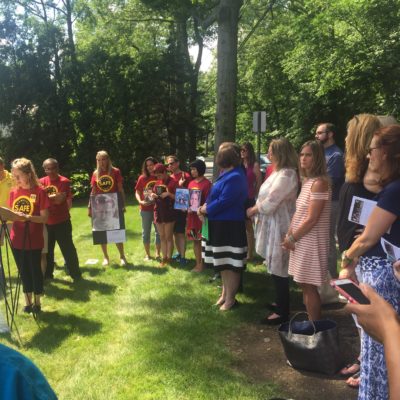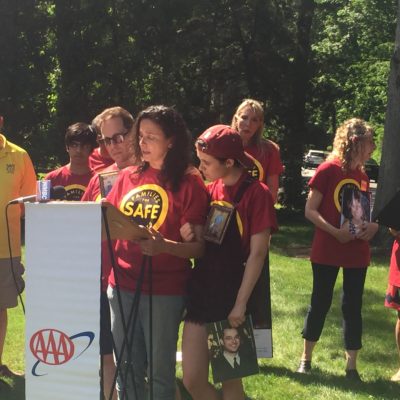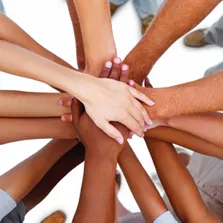Families for Safe Streets New Jersey


FAMILIES FOR SAFE STREETS NEW JERSEY
Mobilizing Pain and Grief to make our Streets Safer.

In 2017, families impacted by traffic violence partnered with Tri-State Transportation Campaign (TSTC) — advocates for reducing dependency on cars in New York, New Jersey and Connecticut — to form Families for Safe Streets New Jersey (FSS NJ). FSS NJ gives New Jersey residents who have lost loved ones or been injured in traffic crashes the opportunity to receive support services as well as to channel their pain and grief into action.


- Movement Building – We strive to build a movement whose collective demands will ensure that New Jersey streets are safe for all New Jerseyans. A key component of this movement is the creation of a group that welcomes every New Jerseyan impacted by traffic violence to join us. In addition, we seek mutually–beneficial partnerships with other traffic safety organizations and community-based groups.
- Commitment to Common Goals – Although the circumstances that brought each member to the group may differ, we commit to work together on issues that have the most impact on saving lives and reducing serious injuries due to traffic violence.
- Actions/Tactics – The group will work closely with TSTC leadership to ensure that our efforts are amplifying tactics and strategies identified as most likely to reduce traffic violence and save lives. The tactics will be comprised of activities seeking change “inside” the system through meetings with elected officials, government agency leadership, other advocacy groups, and community partners. In addition, we will press for change publicly through press conferences, rallies, and public forums.
- Decision-Making – FSS NJ seeks to make decisions as collectively as possible. We recognize that as volunteers we need a formal decision-making structure and have created a Steering Committee to provide leadership and guide the group.
- Representing the Group – FSS NJ Steering Committee will create tools and provide resources explaining the group’s actions to members. We recognize that while all of our stories are unique and powerful, success in our advocacy efforts requires that all members deliver a consistent message.
- Inclusivity and Diversity – We strive to represent the breadth of New Jersey since traffic collisions impact individuals of all backgrounds from diverse neighborhoods across the state. We also welcome those who were injured on a visit to New Jersey, as well as family members of individuals who lost their lives while temporarily in the state.
- Compassion & Understanding – We acknowledge that everyone comes to FSS NJ as a result of traumatic loss or injury, recognizing that none is more “worthy” of involvement than another. We commit to supporting one another and we strive to treat one another with respect, listen attentively, and work to overcome any differences that may arise.
- Achievements – We take pride in our collective successes, and when our actions are not successful, we will rethink our approach and refocus our energies so that we achieve maximum effectiveness.
